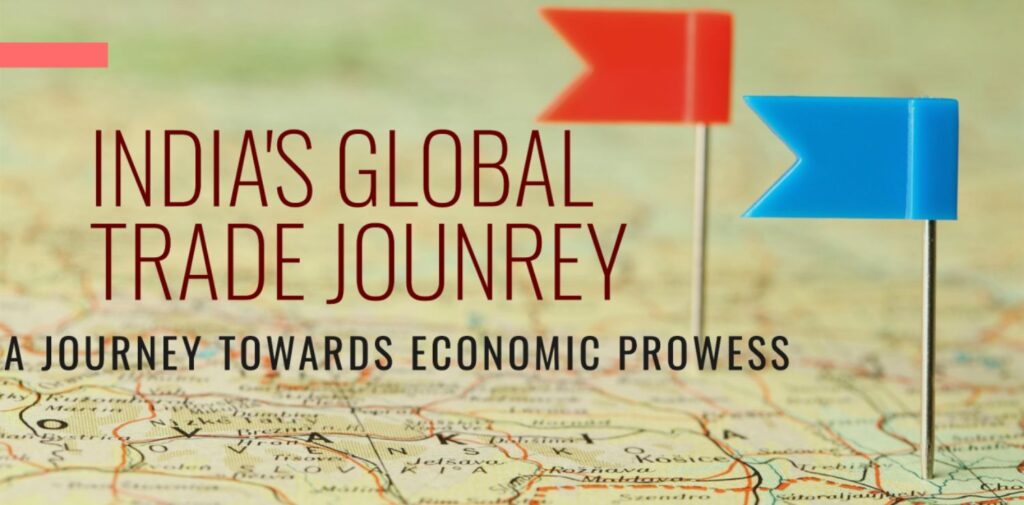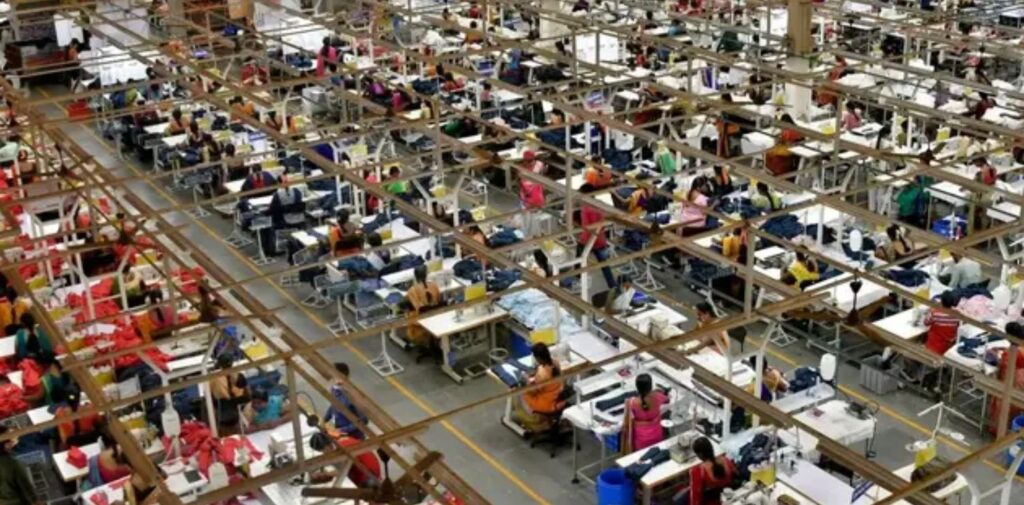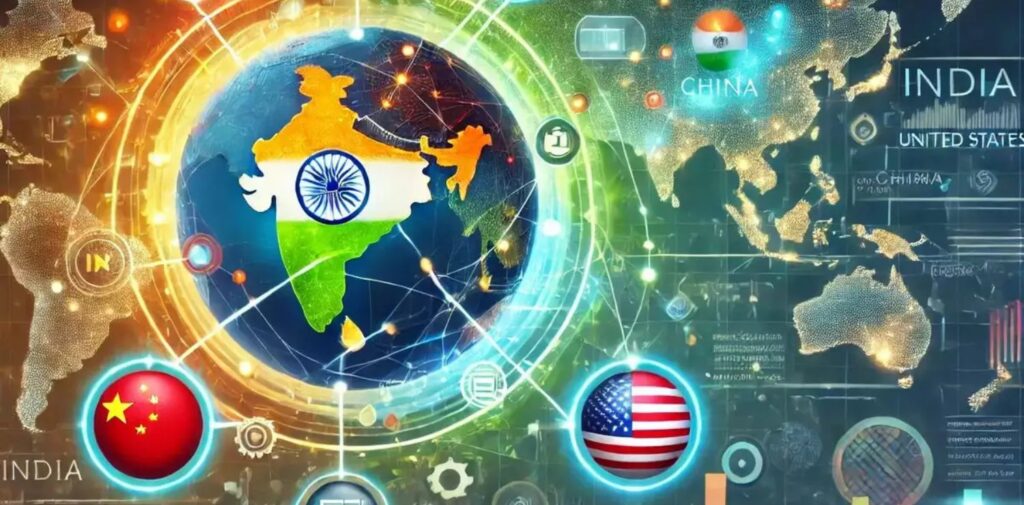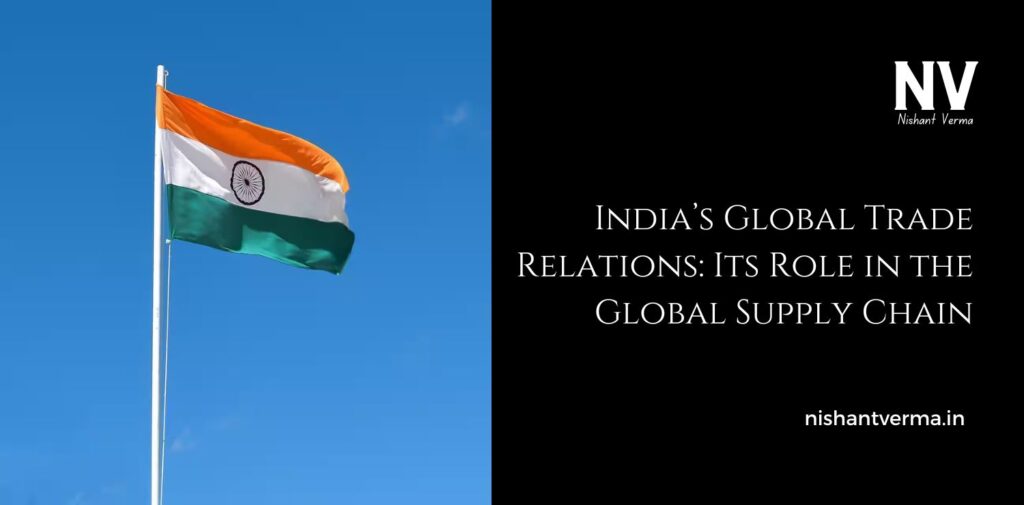India, the world’s largest democracy, has long been a key player in global trade. Since its independence in 1947, India has grown to become an important part of the global economy. Today, India plays a crucial role in the global supply chain, which means that it is involved in producing, supplying, and consuming goods that are traded around the world. But how did India reach this point, and what role does it play in global trade? Let’s dive into it!
India’s Journey in Global Trade
Before independence, India was under British rule for nearly two centuries. During this period, the British controlled India’s trade. Indian goods were exported, and India also imported goods from other countries, but all of this was largely under British control. After independence in 1947, India wanted to build its economy and strengthen its position in global trade.
The first few decades after independence were focused on self-reliance. India wanted to become less dependent on other countries and wanted to develop its industries. This was the period when India followed protectionist policies, meaning it kept its markets closed to foreign competition and focused on growing its local industries.

The 1991 Economic Reforms: A Turning Point
In 1991, India’s economy faced a major crisis. The country was running out of foreign exchange (money used to pay for goods and services from abroad). This led the government to introduce a series of economic reforms that opened up the economy to global trade.
These reforms included reducing tariffs (taxes on imports), allowing foreign investments, and encouraging exports. India also became a member of the World Trade Organization (WTO), which set the rules for international trade. This marked a new chapter for India, and from this point onwards, its trade relations with the rest of the world began to grow rapidly.
India’s Role in the Global Supply Chain
To understand India’s role in the global supply chain, let’s first talk about what a global supply chain is. A global supply chain is a network of companies and countries that work together to create and deliver products. For example, a company in the United States might design a smartphone, but parts for that phone might come from different countries like China, South Korea, and India. These parts are then put together, and the final product is sold all over the world.
India is an important link in this global supply chain, especially in industries like technology, pharmaceuticals, textiles, and agriculture.
India in Technology and Manufacturing
India is a major player in the global technology sector. Indian companies, especially in the fields of software development and information technology (IT), provide services to businesses all over the world. Big companies from the United States and Europe rely on Indian IT firms for services like software development, data management, and customer support.
India also has a growing manufacturing sector. Many international companies set up factories in India to produce goods like automobiles, electronics, and textiles. For instance, companies like Ford, Samsung, and Apple have manufacturing plants in India. This allows them to produce goods more cheaply and sell them in many parts of the world.
India as a Pharmaceutical Hub
India is known as the “pharmacy of the world.” It produces a large share of the world’s generic medicines. Generic medicines are cheaper versions of branded medicines that are just as effective. India’s pharmaceutical industry is one of the largest in the world, and it plays a key role in providing affordable medicines to many countries, especially in developing regions.
During the COVID-19 pandemic, India became even more important in global supply chains as it produced and exported vaccines to many countries, helping the world in the fight against the virus. India’s ability to produce medicines in bulk and at low cost has made it a leader in the global healthcare industry.

India’s Textile and Clothing Industry
India is also a major exporter of textiles and clothing. It has a long history of producing fabrics, such as cotton, silk, and wool, which are used to make clothes. Indian-made clothes are exported to countries all over the world, from the United States to Europe. The textile industry in India provides jobs to millions of people, and it plays an important role in the global fashion and clothing supply chain.
India’s Agricultural Products
India is one of the largest producers of agricultural products in the world. It grows a variety of crops, including rice, wheat, tea, coffee, and spices. These products are exported to many countries and are part of the global food supply chain. Indian farmers supply food to countries in the Middle East, Africa, and even the United States.
India’s agricultural products are important not just for food but also for various industries like tea and coffee manufacturing. The agricultural sector has always been vital to India’s economy, and it continues to play a key role in global trade.
India’s Trade Partners and Growing Influence
India’s trade relations have expanded over the years, and it now has many important trading partners across the globe. Some of India’s biggest trading partners include countries like the United States, China, the United Arab Emirates, and Saudi Arabia.
The United States is one of India’s most important partners for trade in both goods and services. India exports a variety of products to the U.S., including textiles, chemicals, and information technology services. The U.S. also invests heavily in India, especially in the technology and manufacturing sectors.
China is another major trading partner, with both countries exchanging goods like electronics, machinery, and chemicals. While there are also political tensions between the two countries, trade continues to be an important part of their relationship.
The UAE and Saudi Arabia are important partners for India in terms of oil imports and trade in goods like textiles and machinery. These countries are also important destinations for Indian workers who send remittances back home, which helps boost India’s economy.
The Challenges India Faces in Global Trade
While India has made great strides in global trade, there are still challenges that it faces. One of the biggest challenges is the need to improve infrastructure. Roads, ports, and airports need to be modernized to handle the growing amount of trade. Without good infrastructure, it can be difficult to move goods quickly and efficiently.
Another challenge is the need to improve the ease of doing business. While India has made improvements, starting and running a business can still be complicated. This can discourage foreign companies from investing in India.
There are also trade imbalances, where India imports more than it exports. This can sometimes lead to tensions with trade partners, as they may want to sell more to India, but India doesn’t have the same demand for goods.

The Future of India’s Global Trade Relations
Looking ahead, India’s role in the global supply chain is only set to grow. The country is focusing on becoming a global manufacturing hub through initiatives like “Make in India,” which encourages businesses to produce goods in India. India is also making efforts to improve its infrastructure, simplify business regulations, and increase exports.
India’s young population and growing middle class provide a strong base for future economic growth. As India continues to grow, its role in global trade and the global supply chain will only become more important.
Conclusion
India’s journey from being a colony under British rule to becoming a major player in global trade is an inspiring one. Today, India is an important part of the global supply chain, contributing to industries ranging from technology and pharmaceuticals to agriculture and textiles. India’s future in global trade looks bright, as the country works to strengthen its economy, improve infrastructure, and build strong trade relations with countries all over the world.
For young minds, understanding India’s role in global trade helps us see how interconnected our world is. Whether it’s the smartphone in our hand, the clothes we wear, or the medicines we take, India plays a key role in making sure that these products are available to people everywhere. India’s growing importance in the global supply chain is a reminder that no country is too small to make a big difference in the world!




